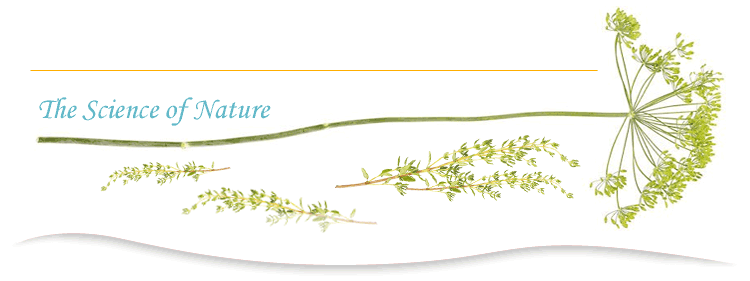

The mystery of ageing
Research tends to demonstrate that a balanced lifestyle characterized by healthy nutritional habits, regular physical activity, adequate rest and sleep, the absence of bad habits such as smoking and drinking, good stress management skills, as well as a healthy social life, is critical to healthy ageing. A healthy lifestyle may also increase your longevity. In his exceptional book, Defy Aging, Michael Brickey, PhD has reviewed and put together the conclusions of thousands of scientific studies and references about longevity. One of the important conclusions of this extensive review is this: “Researchers estimate that 30% of longevity is due to heredity and that 70% is the consequence of our beliefs, attitudes, coping skills and lifestyle”.
What are the effects of ageing on my body?
As we age, our body, our organs, and bodily systems undergo many changes. These changes increase our risk of developing various diseases. Here is an overview of the common changes we experience as we age and some tips on how we could delay or even reverse some of those changes:
- Body Fat: As we age, body fat normally increases. Patterns vary with individuals, but, predominantly in men, fat typically deposits on the organs within the abdomen, which, in itself, increases the risk for some diseases such as heart disease and diabetes; for women, it tends to accumulate more outside of the abdomen, mainly around the buttocks and thighs.
- Circulatory System: The heart muscle weakens and works harder in order to compensate. Pumping the blood becomes less efficient. Arteries thicken and become narrower and more rigid, leading to an increase in blood pressure and making the heart work even harder in order to pump blood against their progressively higher resistance.
- Immune System: As we age, our immune cells lose their capacity to reproduce and our immune defense system capabilities decline.
- Musculoskeletal:

- Bones and joints: Decrease in bone mass and deterioration and drying of joint cartilage leads to increased risk of fracture and joint pain and stiffness.
- Muscles: Mass and muscle tone progressively decline, leading to a decrease in muscle strength and to an increased risk of developing gait problems. The decrease in muscle mass also leads to a decrease in our metabolism, which, in turn, leads to a progressive increase in our body weight and fat.
- Brain: As we age, the number of neurons decreases, and there is a decline in the nerves functional capacity in general. The connections between brain cells become less efficient and our short-term memory tends to decline. We react more slowly to various stimuli, and generally speaking, we need more time to adjust to changes.
- Perceptual senses:
- Kidneys: Kidneys progressively lose their filtration capacity and their ability to remove toxins from our system.
- Bladder: The total capacity of the bladder and its muscle tone decrease, often leading to incontinence.
- Prostate: Volume of the prostate progressively increases. The risk of developing prostate cancer also progressively increases with age.
by Michael P. Brickey
The Real Sexy, Smart and Strong: 30 Tips to Boost Confidence, Get Fit and Feel Great, Inside and Out
by David Patchell-Evans
by Deepak Chopra M.D.
Longevity and Optimal Health: Integrating Eastern and Western Perspectives (Annals of the New York Academy of Sciences): 1172, by William C. Bushell
What is ageing and why do we age?
The study of ageing is a fascinating and relatively new field of research. We know that our age-related manifestations result from a gradual loss of bodily functions, and that two people of the same chronological age may well have two different physiological ages and/or different manifestations of ageing. Why do some people show significant signs of ageing and chronic diseases while others experience a “healthier” type of ageing?

- Vision: Visual acuity decreases. Some may develop progressive macular degeneration.
- Hearing: Our capacity to hear decreases, especially when there is background noise. The ability to perceive high-frequency sounds also declines.
“One of two things happens after sixty, when old age takes a fellow by the hand. Either the rascal takes charge as general factotum, and you are in his grip body and soul; or you take him by the neck at the first encounter and after a good shaking make him go your way.”
- William Osler, 1849-1919
Why are we ageing? And what can I do to prevent the effects of ageing?
Over the last 30 years, our increasing understanding of ageing has shown that ageing is a complex process that results from interactions between genetic, physiological, and behavioural factors. Reviewing all theories and discoveries about ageing can be fascinating, but also very fastidious. Here is a very brief overview.
Theories of ageing can be divided into two or three main groups. The first group includes genetic theories, which show that ageing is programmed into our genes. A second group of ageing theories says that many of the manifestations of ageing are the result of a progressive accumulation of damage to important molecules and to our cells. There are many identified causes of this damage. In this regard, research has identified the important role played in the ageing processes by molecules called free radicals. Free radicals cause small and repetitive damage that accumulates over time, leading to the various manifestations of ageing.
The good news is that there are many things we can do to improve, delay, or even reverse some of the manifestations of ageing, thus contributing to a longer and healthier life.
What can I do to prevent the effects of ageing?
Although there is little we can do at this time to influence genetic causes and “programmed factors”, the good news is that many of the other causes and effects of ageing can be influenced positively. Research tends to demonstrate that a balanced lifestyle characterized by healthy nutritional habits, regular physical activity, adequate rest and sleep, the absence of bad habits such as smoking and drinking, good stress management skills, as well as a healthy social life, are all critical to healthy ageing. A healthy lifestyle may also increase your longevity. In his exceptional book, Defy Aging, Michael Brickey, PhD has reviewed and put together the conclusions of thousands of scientific studies and references about longevity. One of the important conclusions of this extensive review is this: “Researchers estimate that 30% of longevity is due to heredity and that 70% is the consequence of our beliefs, attitudes, coping skills and lifestyle”.
In adopting different and healthier lifestyle choices, it therefore becomes possible for us to control some aspects of the ageing process. There are many positive actions that we can take in order to help prevent or even improve some of the effects of ageing:
- By developing a balanced lifestyle, you ensure that all of the essential elements for a better, healthier, and longer life are in the appropriate amount and proportions.
- By developing good nutritional habits, you will provide your body with the nutrients it needs to optimally maintain all systems and functions.
- By eating foods containing optimal amounts of antioxidants and making judicious use of nutritional supplements, you may be able to minimize damage caused by free radicals and provide your body with an optimal amount of vitamins and minerals, which may help prevent the development of some of the chronic diseases associated with ageing.
- By ensuring you are taking adequate amounts of omega-3 fatty acids, you are reducing your risk for heart, stroke, and other cardiovascular diseases. Omega-3 may even have protective effects against Alzheimer’s disease, macular degeneration, as well as many other conditions.
- By taking adequate amounts of lycopene, you may reduce the risk of developing prostate cancer.
- By exercising, you can maintain better muscle mass and tone, maintain good heart and lung functions, and improve oxygenation to your organs and to your brain. Exercise can also affect longevity positively by reducing the risks of obesity, diabetes, high blood pressure, heart disease, stroke, depression, osteoporosis, colon cancer, and premature death.
- By losing a few extra pounds (if you are in a BMI risk category), you will reduce the risk of developing chronic diseases. For instance, research on rats and mice shows that restricting calorie intake can prevent the development of certain diseases and can significantly increase life expectancy (References).
- By seeing your doctor as recommended, you will ensure that you are properly screened (and treated) for conditions known to affect your health and longevity (hypertension, diabetes, obesity).
- By learning and developing effective stress management strategies, by practicing positive thinking, and by keeping a good attitude toward life, you will have a healthier and happier life and may also improve your life expectancy. Positive self-perception of ageing has also been shown to extend life in people by as much as 7.5 years. (References)
- Nurturing a healthy social life will also have positive effects on your longevity. Invest time in cultivating healthy relationships with people who will bring positive energy to your life and who will help you grow -- your spouse, your children, and your friends. Make an effort to work on close relationships that can be improved, and consider detaching yourself from relationships that seem to be too toxic.
Conclusion
Although there is little we can do at this time to influence the genetic causes of ageing, the good news is that there are many actions that you can take right now that may positively influence many of the other causes and effects of ageing.
I want to learn more
- On this site
- Recommended readings
- Respiratory System: The elasticity and maximum capacity of the lungs progressively decrease, leading to a decrease in the amount of oxygen delivered to all organs.
- Skin: The skin becomes thinner and is more prone to tears and injuries. It also becomes dryer and itchier. Wounds also take much more time to heal.
- Urinary system:
- Neurological: